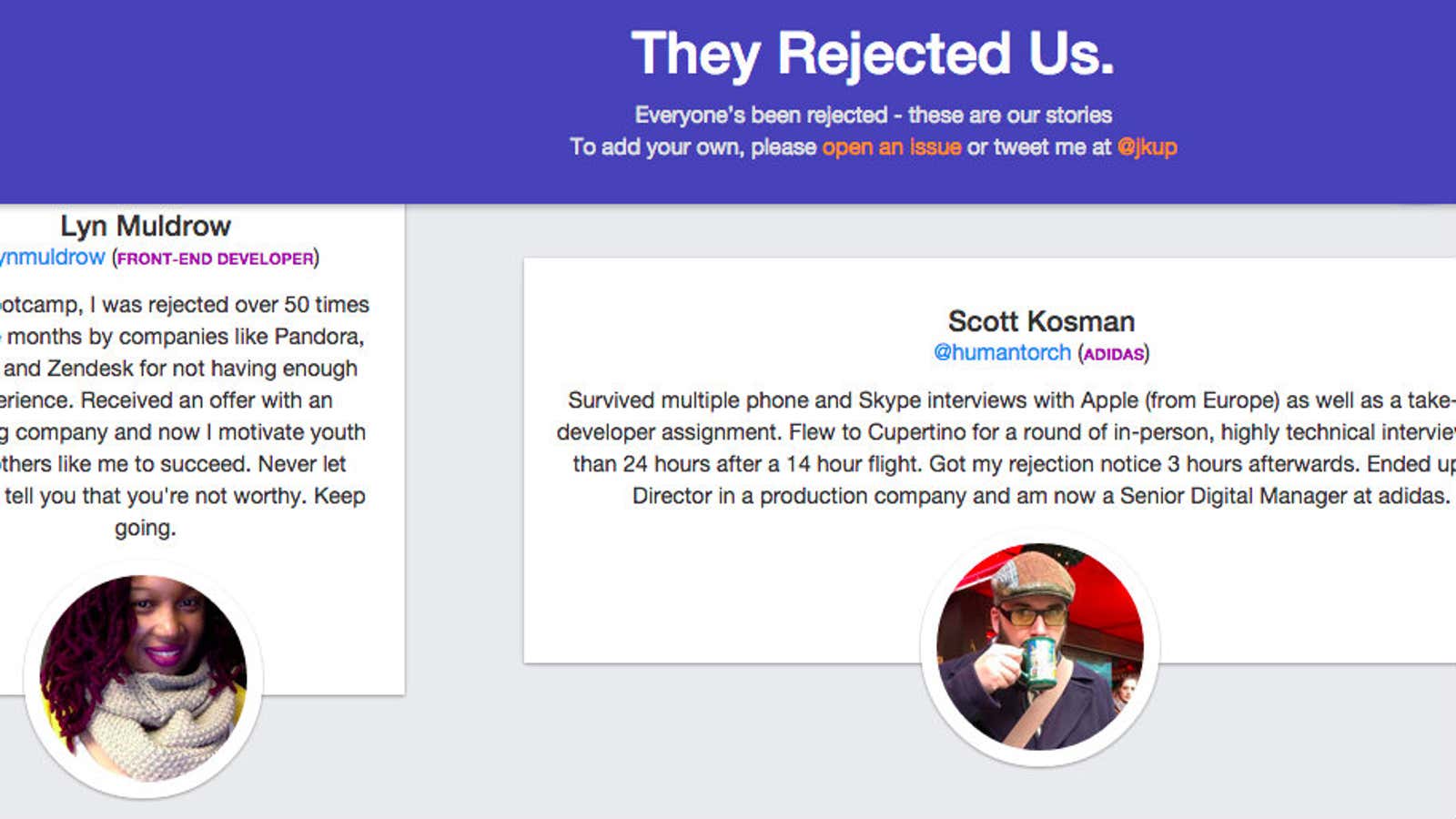If you take LinkedIn profiles at face value, it would be natural to assume that everyone’s climbing up the career ladder without even breaking a sweat. But behind every impressive resume is a pile of rejection letters. And, after making the recipient miserable for a couple of hours, these rejections are all too often hidden away and never discussed.
In an effort to break the silence and taboo around rejection, Twitter software engineer Jonathan Kuperman launched rejected.us on Dec. 10. The site is a collection of rejection experiences from programmers who are now happy and successful in their chosen careers. Here are just a few of the stories:
Chris Wanstrath, co-founder and chief executive of GitHub, wrote:
“Before cofounding GitHub I applied for an engineering job at Yahoo and didn’t get it. Don’t let other people discourage you.”
Sebastian McKenzie, a software engineer at Facebook, wrote:
“Got rejected from a junior position at Atlassian for not knowing enough about JavaScript. Shortly after they now use the JavaScript compiler that I wrote across most of their JavaScript stack.”
Mike MacCana, who founded his own company CertSimple, wrote:
“Got rejected by Google and within a few months was working there as a contractor. Later one of my projects was used in their recruiting ads as the kind of awesome work you can do at Google.”
Bryan English, software development engineer at Yahoo, said:
“Rejected by Google, Twitter, Square and Airbnb for bombing the on-site onslaughts of technical mindbogglery. One startup even cut me out mid-interview one time (can’t remember which one). Now I’m at Yahoo doing npm things, which is a pretty sweet gig.”
Eric Rosenberg, android engineer at Twitter, said:
“I was rejected without interview at Dropbox. Escorted out halfway through my Microsoft interview. Now I’m senior [engineer] at Twitter.”
And Sam Maskell, also a Twitter android engineer, said:
“Over the course of 9 months, I had tons of interviews, most of which I thought went very well, and I just kept getting rejected. I was ready to drastically lower my bar. Then, within about 5 days, I got an offer from both Twitter and Amazon.”
These stories aren’t particularly dramatic—they aren’t tales of the underdog who was bottom of his class but rose to become the youngest CEO ever. But it’s important to recognize that rejection can also be mundane and commonplace. Almost everyone is rejected at some point, but this certainly doesn’t make them a failure.
